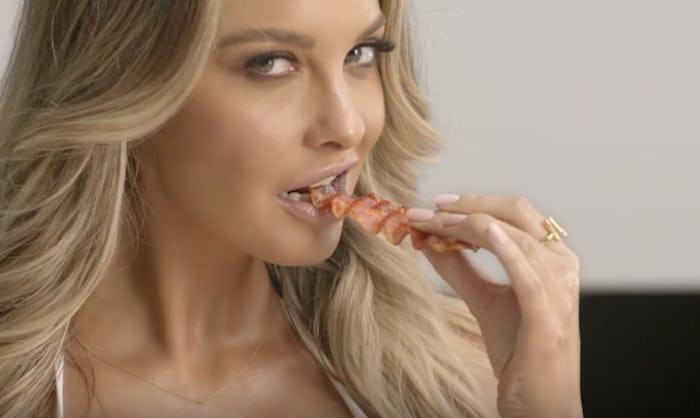Advertisements have a long history of sexualizing women in the name of selling products — but this year's Super Bowl ads didn't sexualize women to the same extent as past years' ads have, and it's a step in the right direction for several reasons. After all, women make up pretty much half of all Super Bowl viewers, so it only makes sense for companies to start acting that way.
This year, there was one wine ad that sexualized women — although, in all fairness, it wasn't as bad as notable fast food companies' ads, which often simply put meat and bikini-clad women together in front of a camera. Other than that one wine ad, however, 2017's Super Bowl ads largely scrapped objectification altogether and focused instead on themes of unity, diversity, and inclusion. For both women and companies, that's a good thing.
The case for women is easy to make. Objectification can make women do worse on cognitive tests, and an increased focus on one's body can lead to shame, eating disorders, and more negative emotions. One study even found that both women and men's brains process women as a sum of their body parts, while they process men as a whole.
"Everyday, ordinary women are being reduced to their sexual body parts," psychologist and study author Sarah Gervais told the Huffington Post in 2012. She said the media was likely to blame for the problem, explaining:
Women’s bodies and their body parts are used to sell all sorts of products, but we are now for everyday, ordinary women, processing them in a similar way.
It's also about time that companies got with the program, as well — since not sexualizing women in their ads is actually a great way to sell more products. According to AdWeek, women make up 46 percent of Super Bowl viewers, but they also make up nearly 60 percent of Twitter users, out-tweet men by 60 percent, and drive 70 to 80 percent of purchasing decisions. That means women are viewing just as much as men are, but they're sharing more widely and more often on social media and buying more. The case for appealing to women in advertising makes itself.
This year, things seemed to take a turn, and many ads actually featured women's stories prominently. 84 Lumber told the story of a brave mother who endured an arduous journey with her daughter in search of opportunity, and Audi used its (expensive) ad time to promote its commitment to equal pay for equal work. These ads were not focused on women in bikinis looking like society tells them they should. These ads were focused on tough, inspirational women who worked hard, were smart, and showed their grit. They were a hell of a lot more than just an instrument to sell a burger with.
Marketing and the media have a long history of objectifying and sexualizing women. However, it looks like things are slowing down when it comes to women's sexualization in Super Bowl ads — and that's a great thing for everyone involved.
